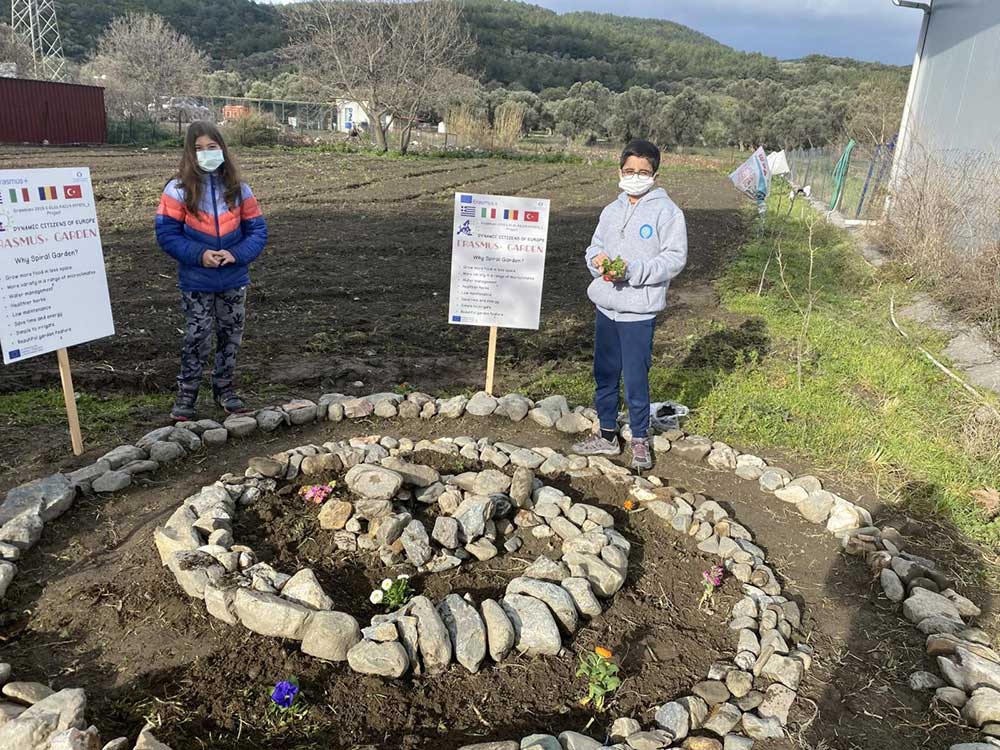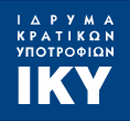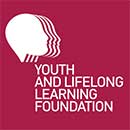Dynamic citizens of Europe
The project “Dynamic citizens of Europe” was carried out in the framework of Key Action 2 (KA2) – Partnerships between schools. Its theme was fostering integration as a means to initiate the readjustment of teaching through the development of skills, such as critical thinking, values, cooperation and social awareness in an ever-changing world.
Who participated
The Erasmus+ project “Dynamic citizens of Europe” brought together 200 students and 50 teachers from 4 primary and secondary schools. The participating schools were from Greece, Italy, Romania and Turkey.
Students face the challenge of diversity in their daily lives. Role Models can have a positive influence on them and motivate them to actively participate in democratic life. Finally, it is necessary for students to discover through teaching how to rely on personal codes of conduct, how to become responsible and active European citizens through their participation in voluntary actions.
Project objectives
The aim of the Erasmus+ project “Dynamic citizens of Europe” was to help students realize that active participation is the cornerstone that holds a society together.
A series of activities, building on the social and emotional learning (SEL) strategy which helps students to get involved in the development of the project, were organized to achieve the project objectives. Students were invited to:
- Raise awareness of their active participation in democratic life.
- Develop insight, perspective and the necessary skills for their participation in local community.
- Understand and reinforce the concept of active citizenship as a way of life.
Another objective was to create a digital toolkit with examples of good practices promoting active citizenship.
Project activities
Several strategies, such as role play, discussion and exchange of views, simulations, presentations and speeches delivered by experts, were implemented in order for the participants to understand the concept of active citizenship.
The application of SEL strategy, through group activities and games, comics and stories, helped participants to:
- acquire knowledge and skills;
- develop attitudes enabling them to understand and control their emotions, set individual goals, cultivate empathy and create positive relationships;
- approach the concept of active citizenship in their community.
During the activities, each participating country delivered presentations and seminars.
In particular, 4 presentations with the theme “What is active citizenship?” and “Cultural values in my country” were given, as well as 4 seminars on citizenship values and the importance of volunteering, which were delivered by an expert.
Project impact
The project promoted active participation in democratic life and the concept of responsibility. It strengthened cooperation between schools and local bodies. It supported schools in leveraging SEL strategy and collaboration among students. Finally, the project contributed to the expansion of school curricula through interdisciplinary teaching.
Students strengthened their social consciousness, self-consciousness, self-management and their decision-making skills.
Students created a range of products, such as:
- presentations with the theme “Active citizens and environment” and “The school, the city, my country”;
- a comics exhibition;
- a garden named “Erasmus+”;
- a magazine with student stories.
Moreover, 4 active citizenship clubs for students were created, one for each school, as well as t-shirts and handcrafted items, and 20 lesson plans which were included in the e-toolkit.
Find out more about the Erasmus+ Dynamic citizens of Europe and draw inspiration from other good practices








